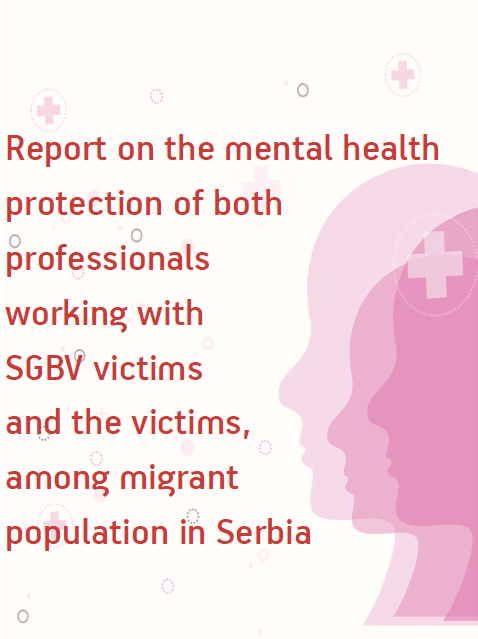Hotline: +381 61 63 84 071
Report on the mental health protection of both professionals working with SGBV victims and the victims among migrant population in Serbia

On the occasion of the International Migrants Day, which is marked on December 18, the day when the United Nations General Assembly adopted the International Convention on the Protection of the Rights of All Migrants Workers and Members of Their Families in 1990, Atina presented the results of the Report on the mental health protection of both professionals working with SGBV victims and the victims among the migrant population in Serbia.
A research on the mental health of professionals, which encompassed 31 representatives of civil society organizations, international organizations and public institutions, as well as refugee and migrant women themselves, found that women and girls are at higher risk of gender-based violence than other migrants (100% of respondents), and that the cultural context significantly determines the behavior of refugee women and directs work with them. Establishing a relationship of trust with persons from this population who have survived sexual and gender-based violence has been recognized as one of the greatest challenges frontline workers face. On the other hand, the most common consequences of violence in this group are depression and suicidal thoughts (22% of respondents), traumatic symptoms (15% of respondents), lack of trust (10%), and somatic symptoms (9%). Regarding the mental health of frontline workers, the analysis showed that almost 80% of professionals did not attend any training on mental health, while only one organization that participated in the research has support for its employees in the form of regular psychological supervision. When it comes to available services for refugee and migrant women, 70% of them stated that they made their first contact with service providers in reception and asylum centers, while they rated their satisfaction with the received services with an average score of 4.48. As much as 65% of them believe that the most important improvement is needed in providing legal support for women who have suffered gender-based violence. Speaking about planning for the future, almost half of the respondents (48.4%) said that they need to know their rights in the country they are residing in order to make any plans, while 32% of them think that representatives of NGOs can help them with that - at the same time, they recognize the responsibility for providing information as an obligation of state institutions.
The analysis was created within the European project WeToo – Protecting mental health: Empowering frontline workers and SGBV victims and survivors. This project is implemented in Italy (Oxfam Italia Intercultura and NGO Alice), Greece (KMOP - Social Action and Innovation Center), Serbia (NGO Atina), Germany (INTEGRA e.V.) and Bulgaria (Association Animus), and is funded by the Rights, Equality and Citizenship (REC) Programme of the European Union. Each country developed its own analysis on the existing policies and practices regarding the care of professionals in direct contact with the victims. The analyses also include experiences of women victims of violence. A transnational report has also been prepared, summarizing the findings from national analyses.
The aim of the project is to enable frontline workers who come into contact with victims of SGBV (police, health and social workers, counselors on SOS hotlines, key stakeholders) to cope with secondary trauma, as well as to provide support to victims in the recovery from trauma. The project has its own website where you can be informed of the ongoing activities: www.wetooproject.eu.












 FACEBOOK
FACEBOOK TWITTER
TWITTER YOUTUBE
YOUTUBE